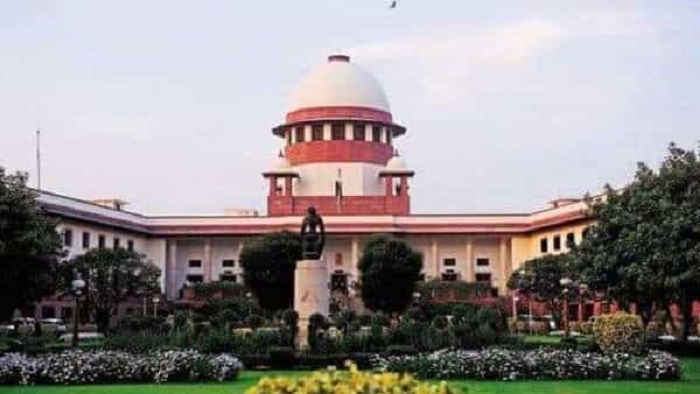 English
English

Citizenship Amendment Act (CAA) was passed by Parliament in December 2019. After that there were many protests against it all across the country. Read further on Dynamite News

New Delhi: The Supreme Court on Monday adjourned the hearing of a batch of petitions challenging the Citizenship (Amendment) Act, 2019 and posted the matter for further hearing on 19 September.
A bench of Chief Justice of India UU Lalit and Justice S Ravindra Bhat was hearing at least 220 petitions challenging the CAA.
The pleas against the CAA first came up for hearing in the Supreme Court on 18 December, 2019. CAA was passed by the Parliament on 11 December, 2019, after which it met with protests all across the country.
Read Also: Supreme Court to hear multiple pleas challenging CAA on 12 September
The CAA came into effect on 10 January, 2020. A Kerala-based political party Indian Union Muslim League (IUML), Trinamool Congress MP Mahua Moitra, Congress leader and former Union minister Jairam Ramesh, All India Majlis-e-Ittehadul Muslimeen (AIMIM) leader Asaduddin Owaisi, Congress leader Debabrata Saikia, NGOs Rihai Manch and Citizens Against Hate, Assam Advocates Association, and law students are several among others who had filed the plea before the top court challenging the Act. In 2020, the Kerala government also filed a suit in the apex court becoming the first state to challenge the CAA.
The law fast-tracks the process of granting citizenship to Hindus, Sikhs, Buddhists, Jains, Parsis and Christians who fled religious persecution in Afghanistan, Bangladesh and Pakistan and took refuge in India on or before 31 December, 2014. The top court had earlier issued notice to the Centre and refused to pass an interim order staying the law without hearing the Centre. In March 2020, the Centre filed its affidavit before the apex court saying that the CAA Act is a "benign piece of legislation" which does not affect the "legal, democratic or secular rights" of any of the Indian Citizens.
The CAA does not violate any fundamental right, the Centre had said while terming the legislation legal and asserting that there was no question of it violating constitutional morality.
It is applicable only to migrants who entered India on or before 31 December, 2014. As per the amendment, certain areas in the Northeast are exempted from the provision. (with ANI inputs)